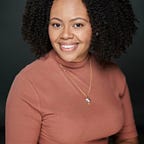Elizabeth Bender Roe Cloud
Ojibwe Activist and Educator
Elizabeth Bender Roe Cloud was born on the White Earth Indian Reservation in Minnesota in 1887. Her father was a German immigrant who married her mother, a Mississippi Chippew native. Her mother was herbalist, healer, and midwife. Elizabeth attended boarding schools in Minnesota (Catholic Sisters Schools in St. Joseph and White Earth Minnesota). She then transferred to Pipestone Boarding School and eventually Hampton Institute in Virginia. Upon completion of her studies in 1907, she continued to take post graduate courses in teaching and domestic science.
She then worked as a teacher on Blackfeet Reservation in Browning, Montana. In 1910, she completed a nursing course Hahnemann Hospital in Philadelphia. Upon completion of the program, she went back to teaching at the Fort Belknap Indian Reservation. Over the next few years, Elizabeth continued her scholarly endeavors and completed coursework in Home Economics between 1914–1915. She started a Camp Fire Girls Program. The program was created to educate young girls on different domestic and artistic skills. Activities included. In 1916 she married her husband Henry Roe Cloud.
The couple moved to Kansas, where Elizabeth served as head matron of the American Indian Institute. The school curriculum combined courses in American and Indigenous cultures. For the next 18 years, Elizabeth oversaw the operations of AII until she retired from the role in 1934. In 1932. Elizabeth received her bachelor’s from Wichita University, and eventually began taking graduate courses at the University of Kansas. Given Elizabeth’s commitment to education and young people, she served as a delegate on the White House conference on Children and Youth per the request of President Franklin D. Roosevelt. It was at this conference where Elizabeth met Sadie Orr Dunbar, president of the General Federation of Women’s Clubs (GFWC).
Elizabeth and her family relocated to the Umatilla Indian Reservation in northeastern Oregon where she also continued her involvement in the women’s club movement. She founded the Oregon Trails Women’s Club on the reservation. Outside of the reservation she joined the Oregon State Federation of Women’s Clubs in 1948 and chaired the Indian Welfare Committee and the Indian Affairs Division. In these roles she sought to ensure the women’s club provided outreach and implemented “goals of equal citizenship for indigenous peoples.
Up until her passing in 1965, Elizabeth continued to advocate for indigenous and Native American’s rights. Within the GFWC AID Project she proposed a Charter of Indian Rights which called on the U.S. government to support Native communities by providing adequate health resources, eliminating poverty and illiteracy, while also allowing Natives the ability to maintain their autonomy. Elizabeth’s efforts were recognized as she was awarded the “Outstanding Indian” of the year award by the American Indian Exposition.
Further Resources
Learn about Native American history and the nursing profession.
Support the National Alaska Native American Indian Nurses Association.
Sources
The sources used for the above biography was referenced from
Standing Up to Colonial Power The Lives of Henry Roe and Elizabeth Bender Cloud
Elizabeth Bender Cloud: “Working for and with Our Indian People”
Learn More
To learn more about inclusion in nursing and be part of the national discussion to address racism in nursing, check out and share the following resources:
Know Your History
- Nursing CLIO to engage with historians and scholars committed to deep work around historical accuracy in healthcare and nursing.
- American Association for the History of Nursing to attend monthly webinars on topics of nursing history, view the calendar here.
Examine Bias
- NurseManifest to attend live zoom sessions with fellow nurses on nursing’s overdue reckoning on racism or to sign their pledge.
- Breaking Bias in Healthcare, an online course created by scientist Anu Gupta, to learn how bias is related to our brain’s neurobiology and can be mitigated with mindfulness.
- Revolutionary Love Learning Hub provides free tools for learners and educators to use love as fuel towards ourselves, our opponents, and to others so that we can embody a world where we see no strangers.
Support & Advocate
- National Coalition for Ethnic Minority Nurse Association to stay engaged with topics relevant to nurses of color.
Help us paint the internet with nursing’s diverse origin stories. Follow this Medium publication, NursesYouShouldKnow on Instagram, LinkedIn, or Facebook, or @KnowNurses on Twitter to share and re-post our articles far and wide.
